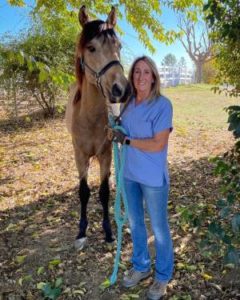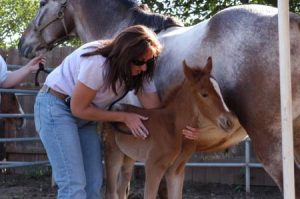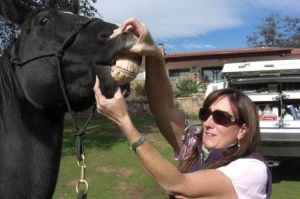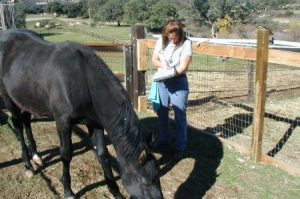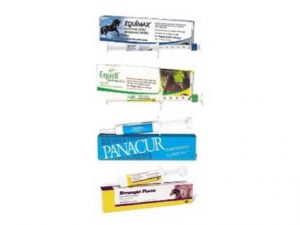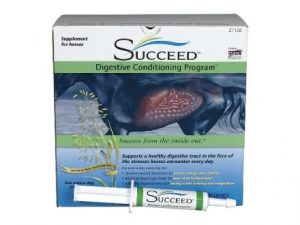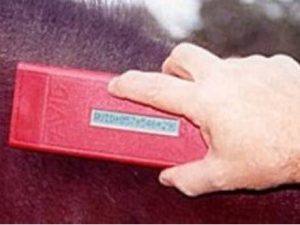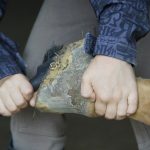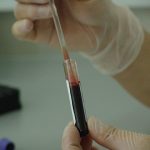
VACCINATING HORSES: COMMON …
Horse owners understand that vaccinations protect the health of their horses and might even be life-saving. What some owners might not realize is that adverse reactions can occur after vaccination. While most vaccines’ side effects are minor, it’s important to know when not to worry and when to call the veterinarian.
“It’s important to remember that annual vaccinations are the best way to help prevent potentially deadly equine diseases and help keep horses healthy,” says April Knudson, DVM, equine specialist for Merial’s Large Animal Veterinary Services.
“Equally important is the understanding that some horses may experience an adverse reaction following vaccination. That reaction, however, will likely be far less devastating than if the horse actually acquired the disease for which it was being vaccinated against.”
Vaccines are designed to stimulate an immune response, notes Knudson. Each horse is unique and one horse’s specific immune response might differ from another’s. In particular, Knudson says it’s fairly common for horses to experience mild, temporary side effects a few hours after intramuscular vaccination, such as:
- Local muscle soreness or swelling
- Fatigue
- Fever
- Loss of appetite
- Lack of energy or alertness
“Even humans experience signs like this following vaccination,” says Knudson. “These types of clinical signs help demonstrate that an immune response has been stimulated, which is exactly what we want the vaccine to do.”
However, Knudson recommends contacting a veterinarian immediately if any of these signs persist for more than 24 hours or if more serious side effects, such as hives, difficulty breathing, collapse, colic, or swelling at the injection site several days post vaccination, occur. While these more serious side effects are rare, they do require veterinary consultation and, in some cases, medical intervention.
Working with your veterinarian is the best way to ensure your horses are being vaccinated for the area’s disease risks and also to make certain the vaccines are handled and administered properly. Vaccines that are handled improperly can become ineffective or even increase the risk of side effects.
With many vaccines available online or through farm supply stores, some horse owners are choosing to purchase and administer their own vaccines to try to save money. But Knudson maintains one of the easiest ways to keep horses healthy and protected year round is to make sure your veterinarian is involved in developing a vaccine protocol.
“Veterinarians are the best source for quality vaccines and vaccine information, and checking in a couple of times a year helps make sure your horse is healthy year-round,” says Knudson. “A good rule of thumb is to communicate with your veterinarian at least twice a year–usually in the spring and fall–to identify the area’s disease threats, assess your horse’s level of risk, and discuss potential travel plans, all of which will help enable you and your veterinarian develop a vaccination program that specifically addresses the needs of your horse.
“If your horse has a prior history of vaccine reactions, no matter how mild, it is critically important you consult with your veterinarian before vaccines are administered,” Knudson concludes.

